Blues bassist Bob Stroger drops a new album 70 years into his career
The natty 91-year-old has been a rock-solid sideman for longer than most people have been alive, and That’s My Name proves he’s just as good at leading a band.
by Steve Krakow, February 23, 2022

Since 2004 Plastic Crimewave (aka Steve Krakow) has used the Secret History of Chicago Music to shine a light on worthy artists with Chicago ties who’ve been forgotten, underrated, or never noticed in the first place.
In the more than 15 years I’ve been writing the Secret History of Chicago Music, I’ve often tried to give props to the past and present venues and labels that support the underappreciated musicians I cover. Local label Delmark Records is the epitome of such an institution. The infamous Bob Koester ran the label from 1953 to 2018, releasing pivotal records by Windy City artists such as Magic Sam, Roscoe Mitchell, Mighty Joe Young, and the Art Ensemble of Chicago. When Koester retired, he sold Delmark to Julia A. Miller and Elbio Barilari, and this month the label is releasing a new long-player by famously natty 91-year-old Chicago blues bassist Bob Stroger. Because we just lost the venerable Jimmy Johnson (at age 93) and his soulful brother Syl (at 85), I’m especially keen to honor our elders while they’re still with us.
Born in Hayti, Missouri, on December 27, 1930, Stroger lost his mother when he was just five. His father, a sharecropper by day, played guitar at parties at night. “It was hard for us because when we got big enough to pick and chop cotton we had to just about pull out of school,” Stroger told the magazine Big City Rhythm & Blues in 2021. “That’s why my education isn’t that good—we had to work on the farm.”
Stroger’s father landed a job with a railroad in Saint Louis, then rode the rails to Chicago and started working for the long-gone Wabash Railroad. Stroger was 16 at the time, and made his first trip to Chicago that year to visit. He came to Chicago for good in his early 20s, moving in with an older brother who’d just finished his military service.
“My brother John, who is five years older than me, got married young—I was living with him and his place was around the corner from the old Silvio’s at Lake Street and Oakley,” he recalled in the same 2021 interview. The bluesmen at that west-side nightclub made a huge impression on Stroger. “You left your windows and doors open a lot in summer—from our open back door I could look into the window at Silvio’s—and hearing that music really inspired me. Wolf, Muddy, all those guys would be playing until early morning—and then they’d all go to someone’s place for a house party for the rest of the night!”

Stroger’s brother-in-law, Johnny Ferguson, was playing guitar in a band called the Twisters with bluesman J.B. Hutto, which inspired Stroger to take up the instrument himself. He started out by driving the Twisters to gigs, but soon he put together his own combo, the Red Tops, which was something of a family band: it included Ferguson, Stroger’s brother John on drums, and Stroger’s cousin Ralph Ramey on harmonica. As a gimmick, each member wore a black beret with a red circle on top—proper band outfits could give you a leg up in the club scene.
Ramey couldn’t tour, though, so Stroger and his brother retooled the band: John adopted the name Joe Russell, and they started calling the group the Blues Hustlers. They brought in future blues bassist Willie Kent to sing—he had yet to pick up the instrument that would make him famous, and according to Stroger, ended up doing so only when a bandmate got too drunk to play his!
Stroger’s own switch to bass was probably foreordained, since he’d already been playing his guitar tuned down an octave when nobody else wanted to fill that role. In his professional life, it arose from a gig playing guitar with jazz saxophonist Rufus Forman. Forman hired blues guitarist Eddie King—Stroger thinks it was in 1959—and because jazz gigs were drying up, King took over the band. They needed a bassist, so Stroger stepped in.
The partnership Stroger developed with King would prove to be a long one, lasting around 15 years. On King’s 1960 debut single for J.O.B. Records, Stroger plays bass: “Love You Baby,” credited to Eddie King & the 3 Queens, is a blast of raw and reverbed R&B with some intricate subtleties, and also features Rico Collins (sax), Detroit Junior (piano), Robert Whitehead (drums), and of course the 3 Queens (vocals). Stroger stuck with King through several bands, including the Kingsmen (not the “Louie Louie” Kingsmen) and a group fronted by King’s sister, Mae Bee Mae (also billed as Mae B. May) called the Blues Machine. (King would later back Koko Taylor and take the Blues Machine name to her.) After King moved to Peoria in 1973, Stroger took a break for a couple years because he didn’t feel like jamming with anyone else.
At that point Stroger was still working a day job as an exterminator, but in the late 70s he was recommended as a bassist to guitarist and singer Otis Rush. Stroger stayed with Rush until the mid-80s, touring Europe with him and appearing on albums such as Cold Day in Hell (Delmark, 1975), Troubles Troubles (Sonet, 1978), and Live in Europe (Isabel, 1986).
This 1976 Otis Rush concert, released by Delmark in 2006, features Bob Stroger on bass.
At around the same time, Stroger and drummer Odie Payne became the rhythm section for European concert promoter Horst Lippmann, whose productions included the touring American Folk Blues Festival. The tour had launched in 1962 and ended in the early ’70s, and Stroger came aboard for a couple annual runs beginning with its revival in 1980. A recording on L+R Records from that first year showcases Stroger’s supple playing with Payne in a group that also features the likes of harmonica master Carey Bell, pianist William Mabon, and Howlin’ Wolf guitarist Hubert Sumlin.
In the late 80s and early 90s, Stroger played on sessions for more blues royalty, including Sunnyland Slim and the band Mississippi Heat, and a list of his other collaborators is impressive even in part: Jimmy Rogers, Eddy Clearwater, Louisiana Red, Buster Benton, Homesick James, Snooky Pryor, and Willie “Big Eyes” Smith.
For most of his career, Stroger has been content to serve as a generous, respectful, rock-solid sideman, but in the 1990s his old friend Sunnyland Slim encouraged him to step out as bandleader. Then in his 70s, Stroger released a rash of albums under his own name, among them 2002’s In the House—Live at Lucerne, Vol. 1 (recorded at a Swiss blues festival in 1998) and 2006’s Bob Is Back in Town (recorded in Chicago). Stroger also provided bass on Carey Bell’s final album appearance, the 2006 Delmark recording Gettin’ Up: Live at Buddy Guy’s Legends, Rosa’s and Lurrie’s Home. The Blues Foundation presented Stroger with a Blues Music Award for Best Blues Bassist in 2011, and he won it again in 2013.
This preview of Stroger’s new album, That’s My Name, features video from the studio sessions for several songs.
This nonagenarian blues lord is clearly on a roll. He’s appeared on more than 30 Delmark releases, and in 2019 and 2020 he made his first album for the label as a bandleader: That’s My Name features his longtime backing group, a crack Brazilian outfit called the Headcutters, and it came out last week after a lengthy pandemic delay. Recorded and mixed by Headcutters guitarist Ricardo Maca at Grooveland Recording Studio in Itajaí (a port city in the Brazilian state of Santa Catarina), it’s a smoky, rollicking, and alchemical album that features Stroger’s bass and deliciously raw vocals, accompanied by Maca and his bandmates Joe Marhofer (harmonica), Arthur “Catuto” Garcia (bass), and Leandro “Cavera” Barbeta (drums). There’s talk of Stroger getting a Chicago-based group together, and if he starts gigging around here, I’ll be front and center to see this living legend.
The radio version of the Secret History of Chicago Music airs on Outside the Loop on WGN Radio 720 AM, Saturdays at 5 AM with host Mike Stephen. Past shows are archived here.


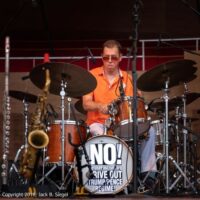


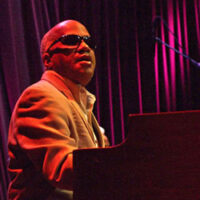











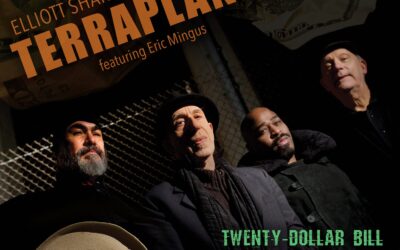

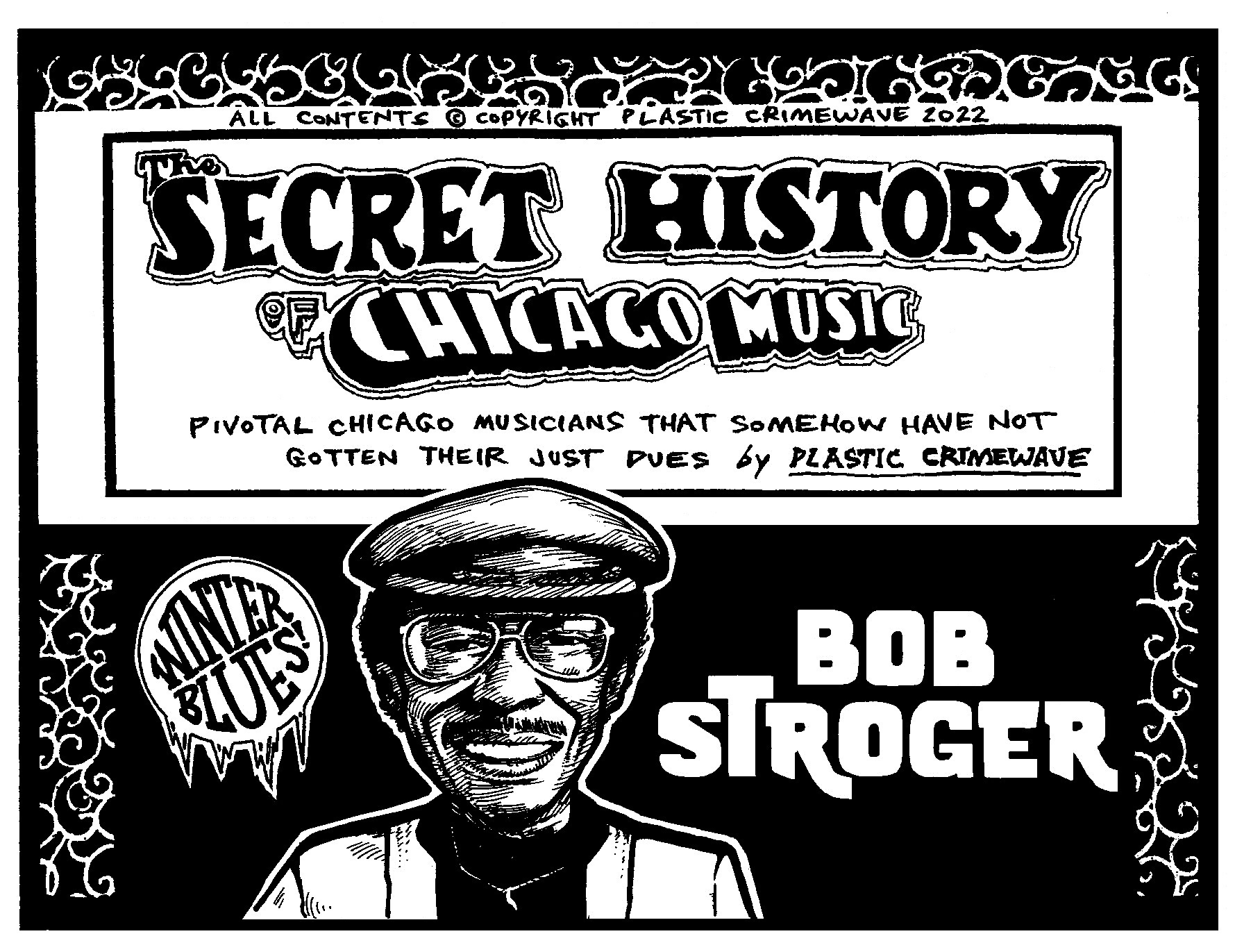


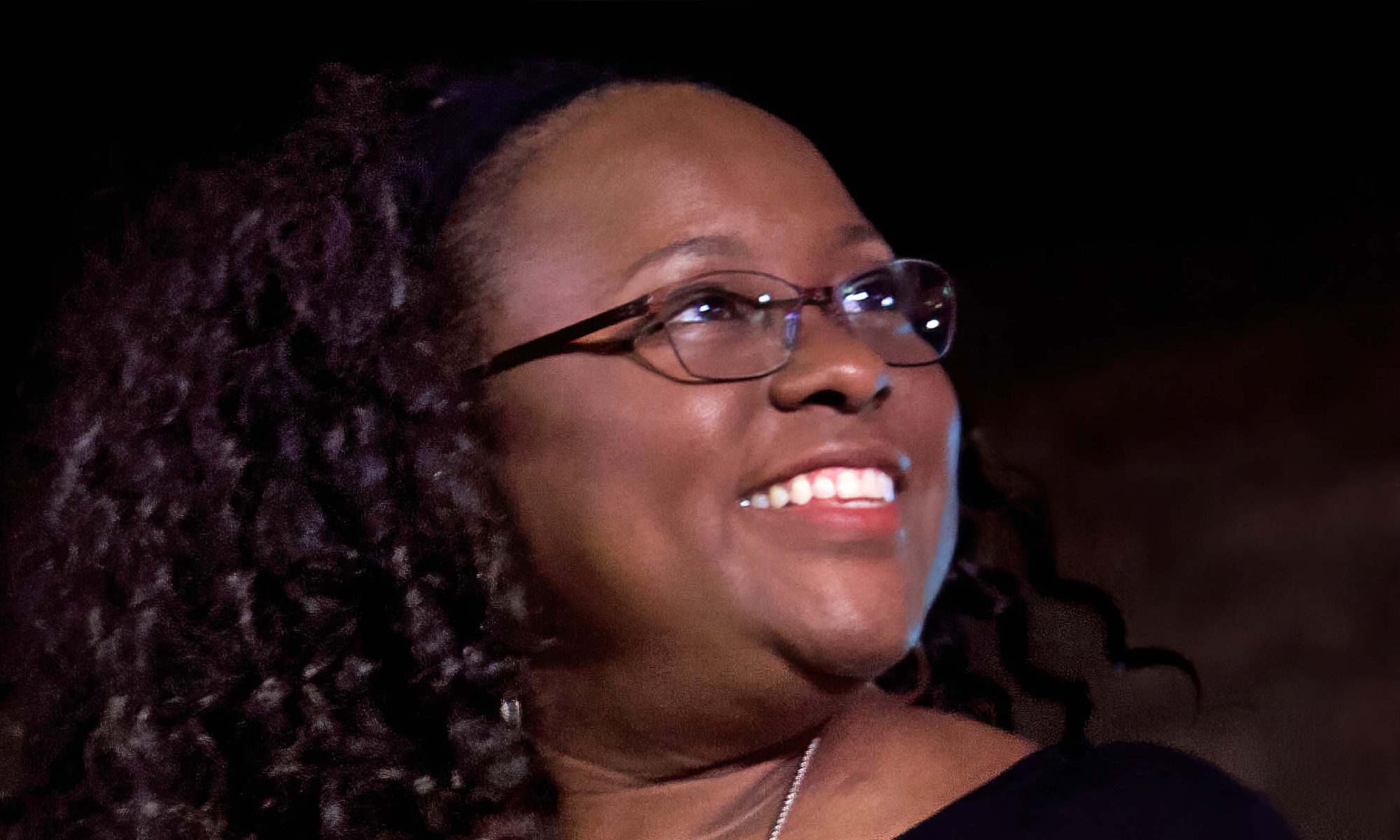
So I am at the Chicago jazz fest 2022 unbelievably nice performance excellent musicians must see
thanks for your nice words!